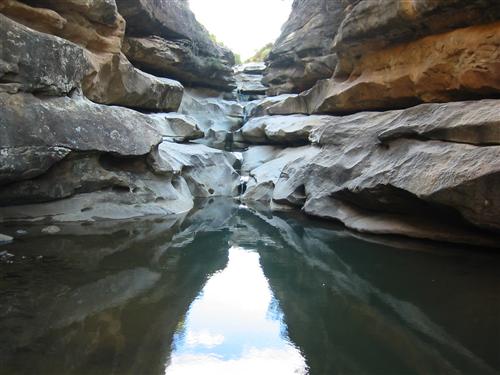The most fundamental human needs or uses of water are drinking, cooking and sanitation. To meet these needs, the quality of the water available to the public must pose no risk to human health. The quality of water also affects the condition of ecosystems upon which all living organisms depend.
Beyond the use of water for drinking, cooking and sanitation, humans use waterbodies (rivers, lakes and oceans) as convenient sinks for the disposal of waste – domestic, industrial and agricultural. While an often cost-effective method for disposing of waste, these activities significantly degrade water quality and can have severe environmental impacts, which can be difficult to alleviate even with treatment.
Maintaining water quality is critical for communities throughout the Orange-Senqu River basin, and is required to achieve Millennium Development Goals (MDGs). Of the eight MDGs or associated targets, protection of water quality in the river system directly or indirectly contributes to the fulfillment of the following four:
-
Eradicate extreme poverty and hunger: Halve, between 1990 and 2015, the proportion of people who suffer from hunger
-
Reduce child mortality: Reduce by two-thirds, between 1990 and 2015, the under-five mortality rate
-
Combat disease: including HIV/AIDS, malaria, and waterborne diseases
-
Ensure environmental sustainability: Halve, by 2015, the proportion of people without sustainable access to safe drinking water and basic sanitation
Three primary forces affect southern Africa’s freshwater environment, in all of the basin states:
-
Geographic and climatic conditions – low rainfall, high evaporation rates and low run-off availability (except Lesotho)
-
Development – including rapid urban population growth, requires economic activity, which leads to increased water demand and pollution
-
Policy on water resources – policy decisions on management strategies have a direct impact on water quality
Source: Bucas (2006); Walmsley et al. (1999)
To access an overview of the water quality situation in the Orange-Senqu River basin, please consultant the: "The State of the Orange Senqu River system – A Report on ORASECOM‘s First Joint Basin Survey JBS-1, Centurion 2011", in the Document Library.
Water-quality is multi-faceted and complex; the main parameters are explained in subsequent sections:

A gorge on the Makhaleng River, near Malealea lodge, Lesotho.
Source:Tjeerd 2004
( click to enlarge )
